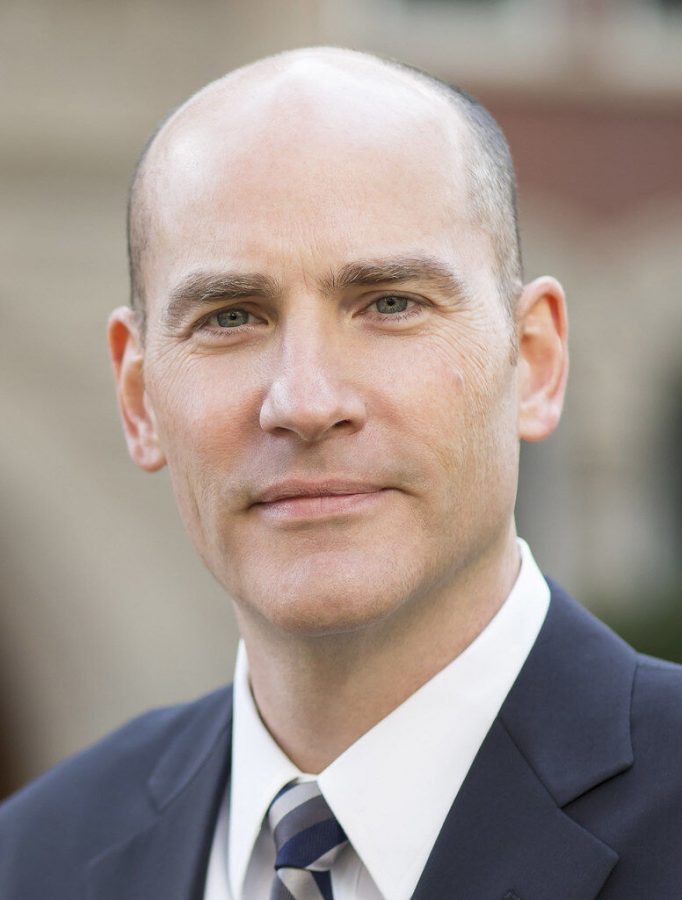OSU continues their effort to fight food insecurity on campus
October 21, 2019
Last spring, OSU President Ed Ray brought attention to food insecurity at Oregon State University. Since then, efforts have been made to improve the situation of food insecurity on campus.
In an email, Kevin A. Dougherty, associate vice provost for Students Affairs and dean of students, said the formation of the task force will be finalized this month. This Task Force will identify opportunities to increase the reach of current programs to students in need of food assistance and provide education and policy analysis to improve the food security around campus.
The ASOSU Task Force will be co-chaired by Dougherty, and will incorporate OSU faculty members currently involved in scholarship and public policy work regarding food insecurity, and local and national research about food issues. Students and staff that are currently delivering OSU programs and services will also be involved in the Task Force. It is estimated that the Task Force will have between 15-20 members.
Ammara Molvi, coordinator of Wellness Affairs at ASOSU, said within academia, food insecurity has been shown to correlate with poor academic performance. Providing students with opportunities to be food secure will allow students to have one less thing concerning their wellbeing to worry about, according to Molvi.
“No student should have to focus on where their next meal will come from while also focusing on their academics,” Dougherty said via email. “We recognize that each day, too many students miss meals, worry about how to feed their families and face difficult decisions about how to spend limited funds on books and course materials, utilities or groceries. It is incumbent upon us to work together to end food hunger within our community.”
Dougherty said in an email that there are several ways that students can get involved to fight food insecurity on campus, such as reaching out to the Human Services Resource Center Twitter account to inform when there is free food or leftovers from university events. Students can also make donations of non-perishable, unopened food items, including bread and fresh produce, to the HSRC located in the Champinefu Lodge, 1030 SW. Madison Ave., from 9 a.m. to 5 p.m.
In an email, Angel Mandujano-Guevara, graduate teaching assistant and staff member of HSRC, said fighting food insecurity will be difficult, and for that reason, the OSU community is joining forces to help students get the resources that they need.
“Fighting food insecurity is going to take all of us. The HSRC doesn’t do any of their programming alone,” Mandujano-Guevara said via email. “From working with partners in University Housing and Dining Services, our Office of Student Life, Transportation Services and the Department of Human Services in Benton County and surrounding areas and the Linn Benton Food Share, this is a community effort that will take all of us to address and challenge food insecurity on our campus.”
In an email, Mandujano-Guevara said the HSRC is trying to make students aware of the resources that they have on campus, such as the Supplemental Nutrition Assistance Program.
“One of the ways we are doing this is by helping students apply for SNAP which has made huge changes to how undergraduate students qualify and get awarded benefits,” Mandujano-Guevara said via email. “Students who come into our center during our SNAPnSnack events on Friday afternoons, from 1 p.m. to 5 p.m., can get assistance applying and get any questions they have answered. Students can be eligible for up to $194 in grocery money each month.”
Hannah Kutten, ASOSU director of Government Relations, is in charge of educating students on key legislative issues regarding students’ success and well-being. The current SNAP system has some issues, according to Kutten.
“ASOSU is urging Bites in the MU to allow the use of SNAP benefits. This will be so helpful because the only other place a student can use SNAP benefits is Cascadia on the other side of campus, near Reser,” Kutten said via email. “This will likely be a year-long project, and ASOSU/the Government Relations team is looking for eager students willing to use their voice to push for this.”
In an email, Kutten said students who work, participate in co-curriculars and go to school, can be affected by food insecurity, due to the lack of time these students have to invest in their basic dietary needs.
“Speaking from my own experience as a first generation and low-income student, I have had to learn how best to meal prep because I’m often on campus from 9:00 a.m. to 9:00 p.m.” Kutten said via email.
Rachel Josephson, ASOSU president said, “Having enough food is one of the basic needs of any person, and when that need is not being met, everything else becomes more difficult, especially school. If we want to have equitable education opportunities, then we need to make sure everyone has access to nutritious food.”
According to Dougherty OSU will release a pilot program this fall, called Food for Thought, which will allow eligible students to eat balanced meals at no cost. This program will consist of using the unsold food prepared within Corvallis campus dining centers, to prepare balanced meals that UHDS will pre-package, and make available at no cost to eligible OSU students.















































































































